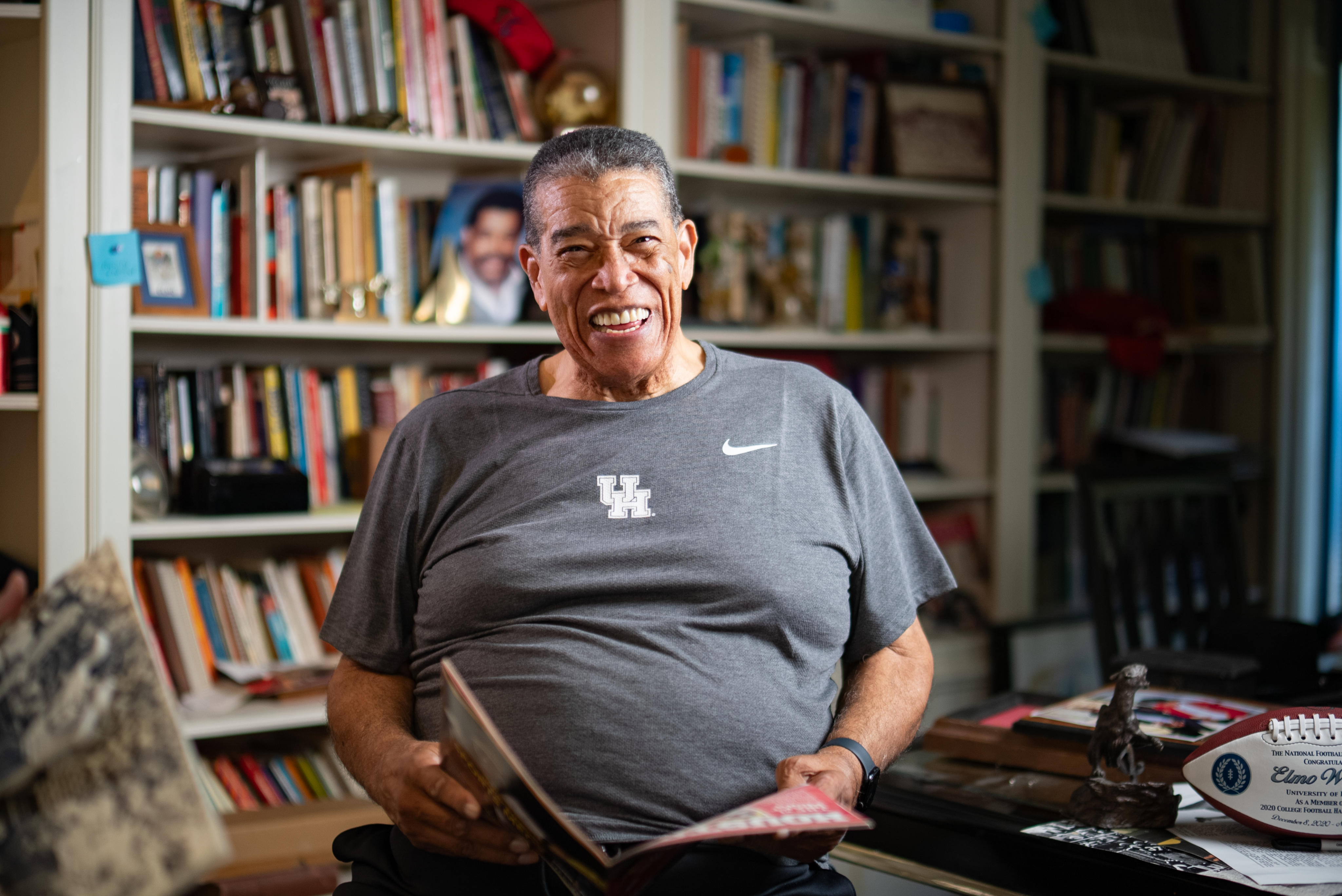Dancing Through Life
Bauer Alumnus Elmo Wright (MBA ‘85) Shares Story, Life Lessons
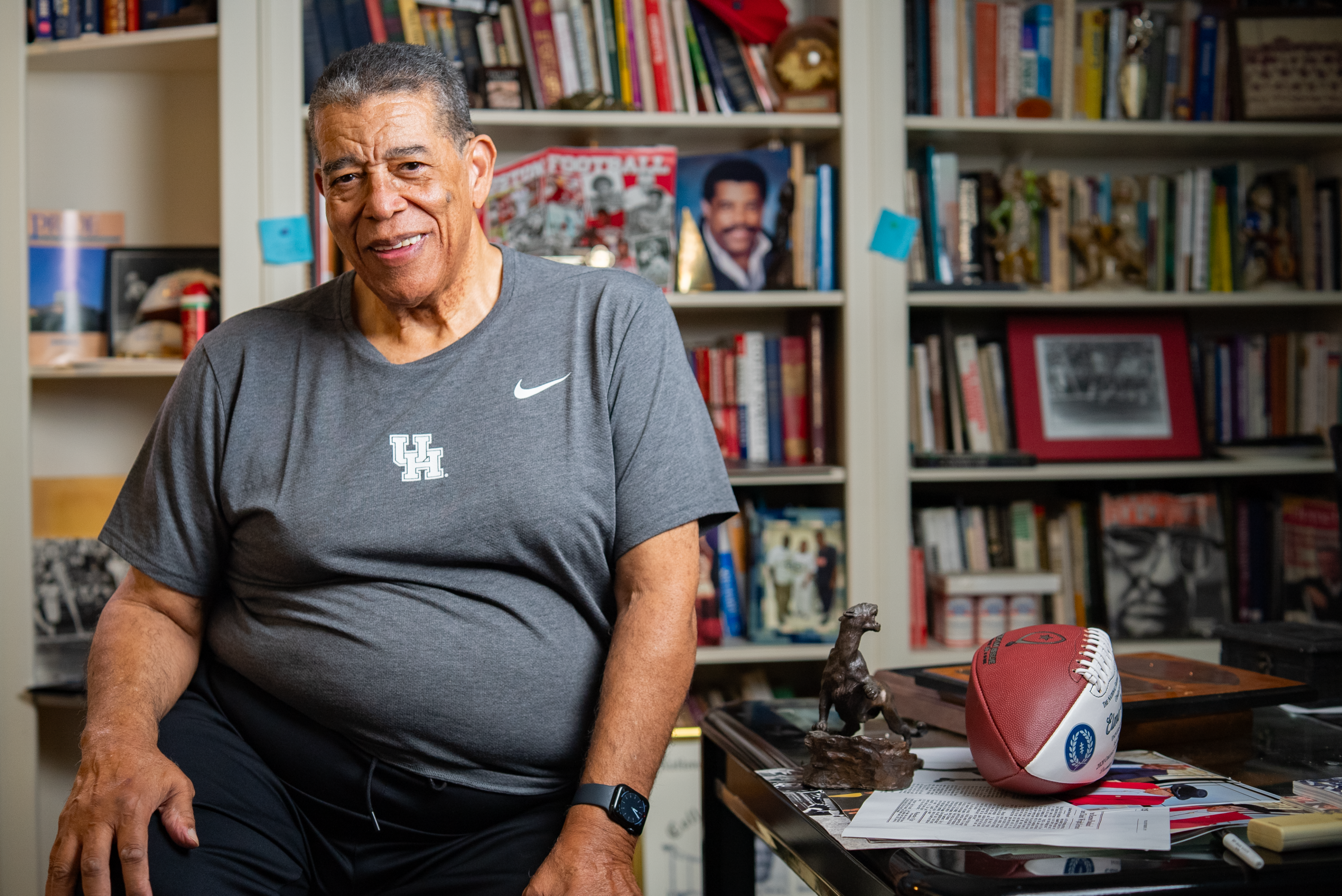
Elmo Wright (MBA ‘85) has always heard the music — from his grade school days playing saxophone in the school band to his time on the football field playing for the University of Houston Cougars, where he made history as what is believed to be the first player on record to do an end zone dance.
But Wright’s story didn’t begin with dreams of being a record-setting athlete or a business student or later, a real estate developer and philanthropist.
His humble start was as a student in the Civil Rights era, attending Houston’s Carver High School and focused on the marching band.
A football changed his life, in more ways than one.
“One day after band practice, someone started yelling my name and I turned around, and a football hit me in the mouth and busted my lip,” Wright recalled.
“The next day, I was thinking the band director would tell me everything was all right, but then he punished me for it, so I quit band because of that, and because I could not play my saxophone,” he said. “Everybody knew I had quit band, and the football coach asked me if I wanted to play.”
Even though he’d never played football before, he took the coach up on his offer, eventually making the All-State team and playing in state championship games. Wright’s star turn soon led to football scholarship offers from leading schools across the state, including the University of Houston.
As an undergraduate student at UH, he studied engineering and focused on football.
“My freshman year I was at practice, and Head Coach Bill Yeoman told the team to throw me the ball, and I missed probably four in a row,” Wright said. “He told the team not to cover me, which was a bit embarrassing because the other players were doing fine, and a ball bounced and ended up breaking my finger.”
After a less-than-stellar freshman year, Wright refocused and found that just like in high school, a rogue football led to a happy accident. He came back for his sophomore year, fingers taped together and ready to play.
“My sophomore year, I played with a broken finger. For some reason, I scored a lot of touchdowns,” he said. “I can’t explain it but that is kind of what happened. That year, I tied record for touchdowns.”
Then, in his junior year, things got even more interesting.
During a game against University of Florida, Wright’s natural charm ensured his name would forever be etched in the football history books as inventor of the touchdown dance.
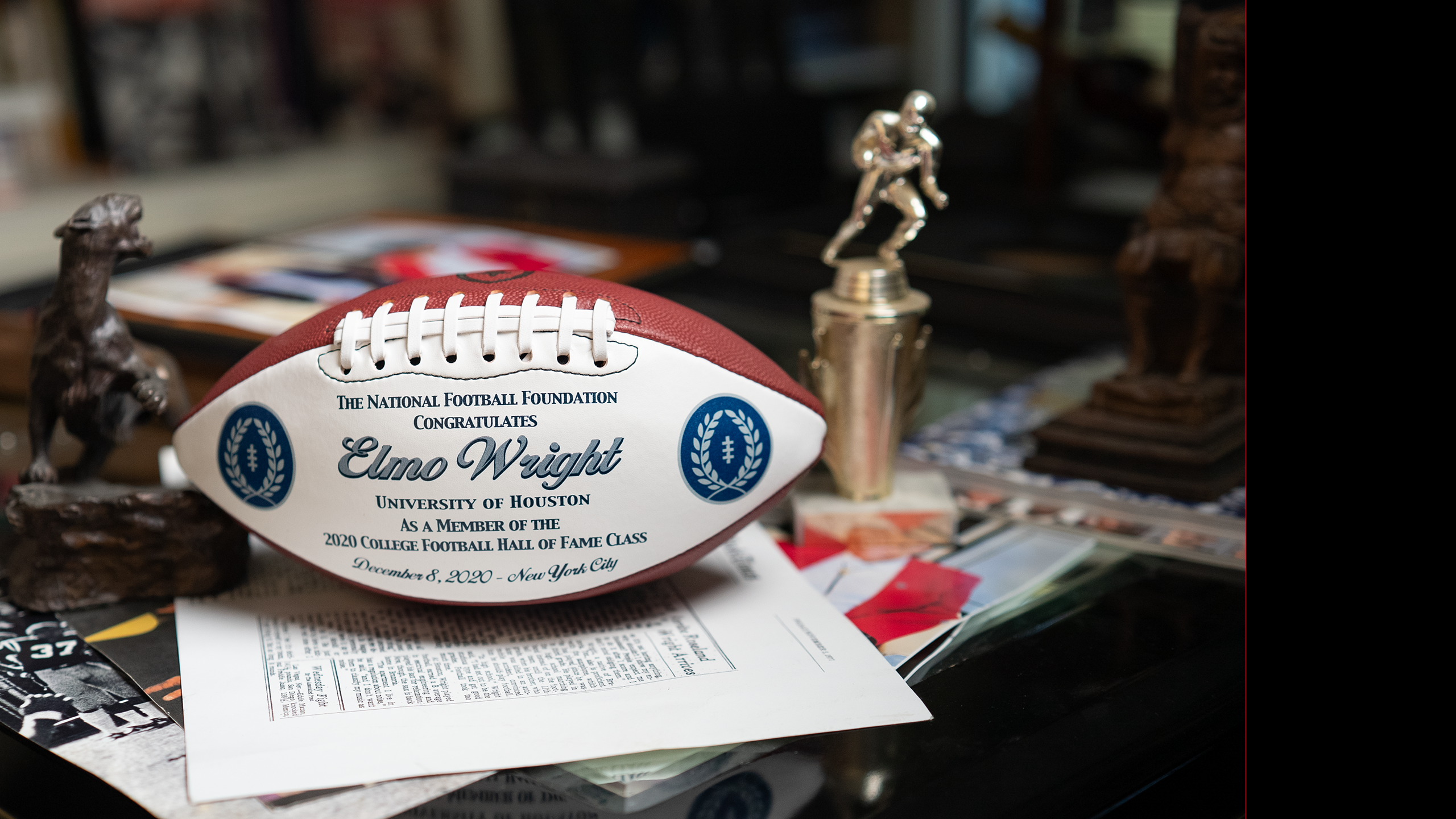
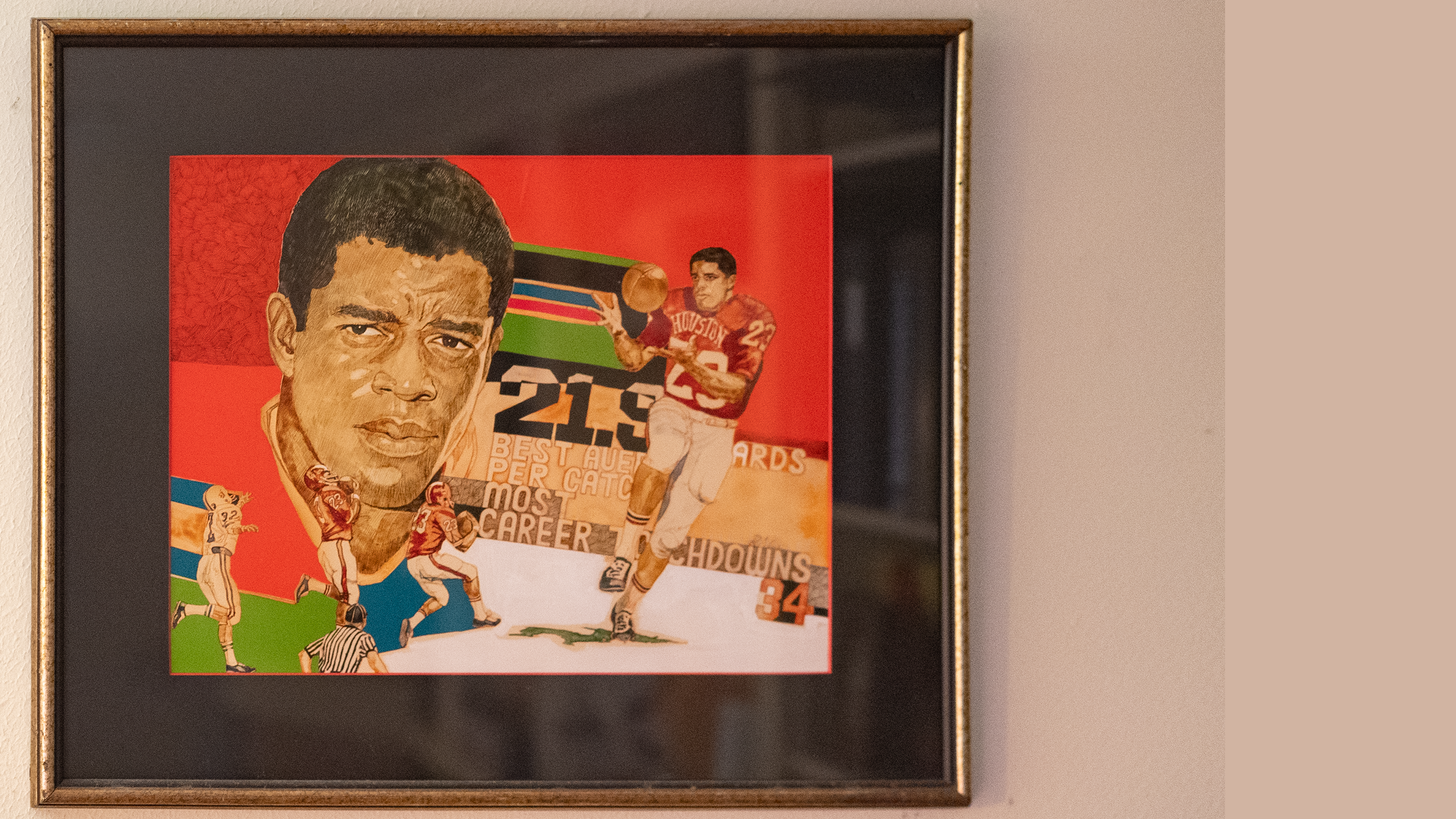
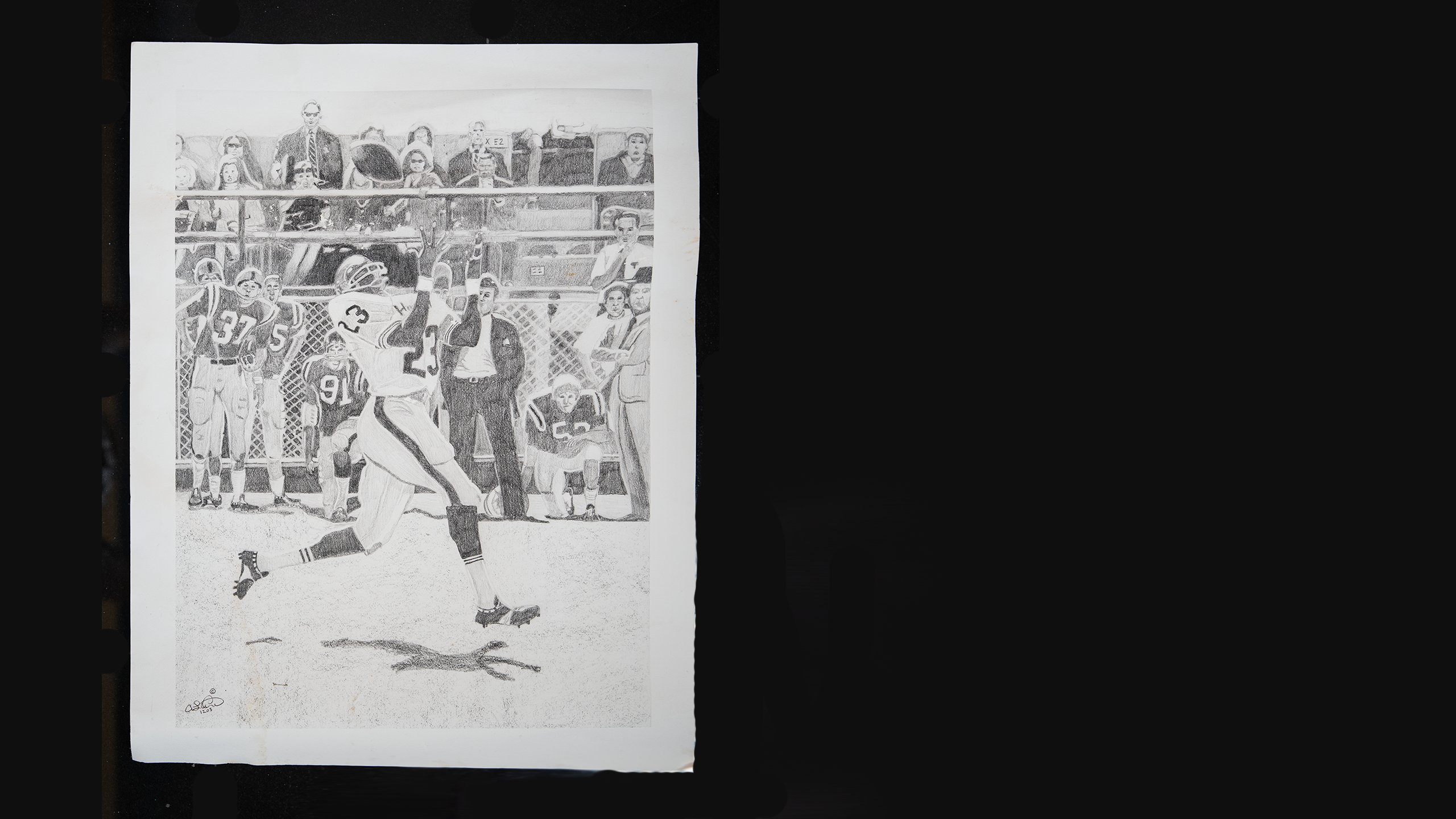
“While we were playing, a fellow by the name of Steve Tannen tried to catch me,” Wright recalled. “I came out of his grip and just high-stepped into the endzone. People started booing me because they thought I was clowning him. When I got to the endzone, I did it faster, and that was the beginning of the touchdown dance.”
And that was just the beginning of Wright’s legacy.
Wright would go on to hold five Houston records in the NCAA, and in his college football career, make 34 touchdown receptions and 3,347 receiving yards, ranking second and fourth in Cougar football history.
“My career was unbelievable, and I never really thought about it from that point of view. I was studying electrical engineering at the time and that kept me preoccupied. I never had time to sit back and process what I was doing on the football field,” he said. “I was also an Academic All-American while studying engineering. I did not know that was going to happen. I just worked hard.”
Wright’s hard work paid off and continued after graduation. In 1971, he was the NFL Draft first-round pick for the Kansas City Chiefs, where he played for four years. In 1975, he played for the Houston Oilers and New England Patriots, ultimately retiring before he turned 30.
“Once I got into the pros, I was always wondering what I was going to do after I leave,” he said. “I am one for planning and decided that I wanted to work in real estate development.”
After leaving professional football, Wright worked for Mitchell Industries on The Woodlands project. He then had the opportunity to work with Harris County Commissioner Jim Fontino, ultimately working his way to Chief of Staff, serving there for over 20 years.
“I became a developer, but became a public developer where we would build infrastructure for the city, county and state. I was developing all that time, but I was not the private developer that I thought I was going to be,” Wright said. “I maintained it and had a lot of fun helping people. Communities needed projects and there I was working and making those things happen. I really enjoyed it and met a lot of people.”
It was during that time that Wright realized he needed a business foundation to continue his career, ultimately deciding to return to his alma mater for an MBA at Bauer College.
“It occurred to me that the football background was a negative to me. People saw me and they immediately wanted to talk about the dance in the endzone, and they would not take me seriously as a job was concerned,” Wright recalled. “I knew that I needed a different foundation. Going to graduate school, I noticed that immediately it was a whole different language.”
He added: “Once I started going to grad school, it seemed like every student was thinking the way I was. If I talked to a person in a specific business, I could talk to them on a level that surprised them, whether it was non-profit or profit, it did not matter.”
Now, Wright has dedicated his life to giving back as a mentor for Bauer students.
“I am a guy who is satisfied with what I have accomplished,” he said. “I am always willing to help people. I have no problem discussing how I can contribute.”
ELMO WRIGHT - BY THE NUMBERS
- 1969 - Second Team All-America Honors
- 1970 - First Team All-American
- 1971- NFL Draft First-round Pick– Kansas City Chiefs
- 1975 – Played for Houston Oilers and New England Patriots
- 2000 - Inducted into the National Football Foundation Hall of Fame
- 111.6 career receiving yards per game - Second most in FBS history at the end of his career. Ranked 12th all-time.
- 34 touchdown receptions
- 3,347 receiving yards (ranks 2nd and 4th in UH Football History)
Wright still owns several Houston records:
- All-purpose career average yards per play (21.0)
- Yards per reception in a season (27.9 in 1968)
- Yards per reception in a career (21.9)
- 200-yard receiving games in a season (Two each in 1968 and 1969)
- 200-yard receiving games in a career (Four)
- 100-yard receiving games (15) – Second in UH Football History
- Single-game receiving yards (262 vs. Wyoming in 1969)
- Single-game touchdown receptions (four)
